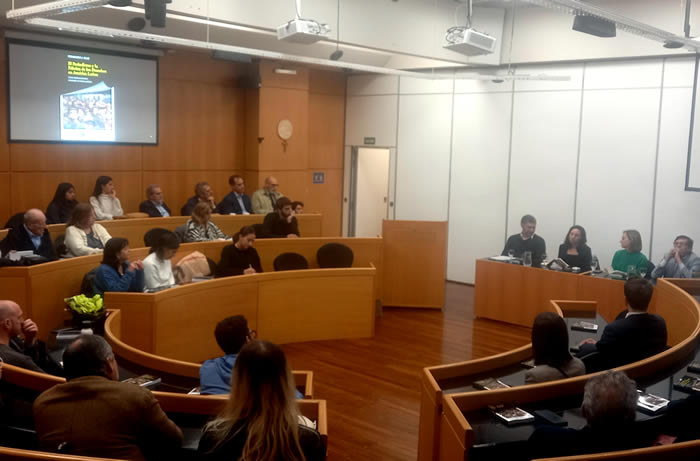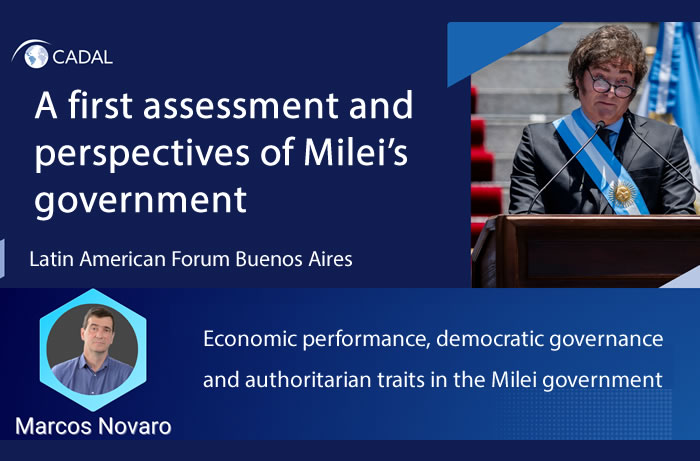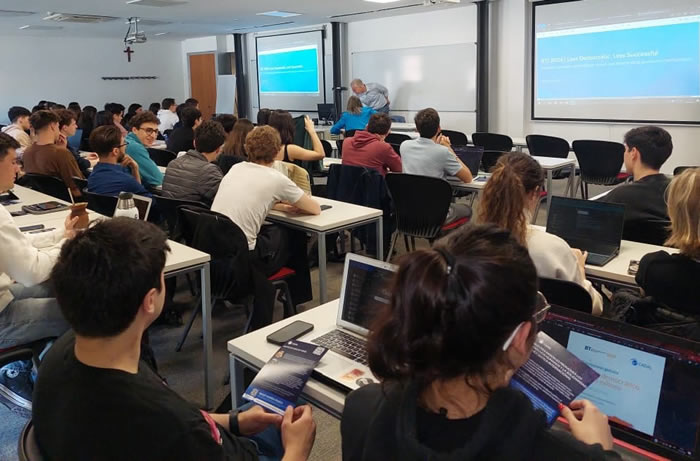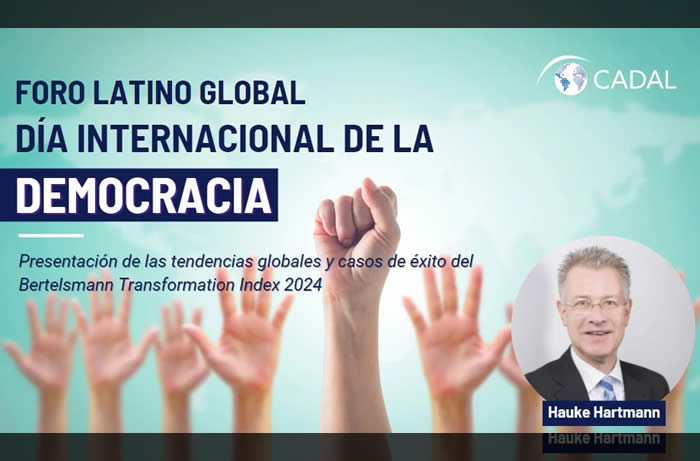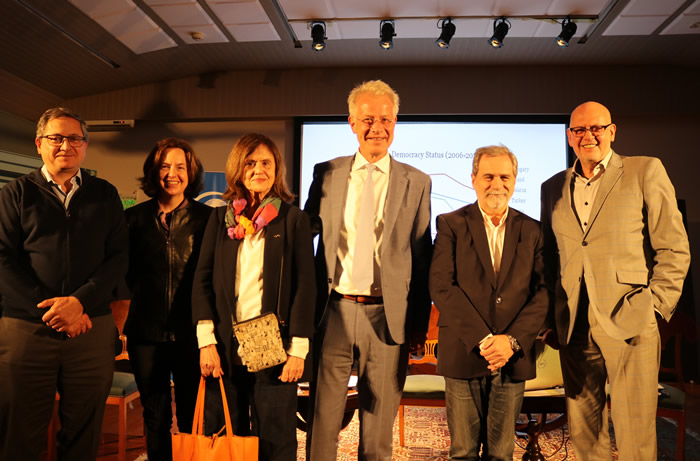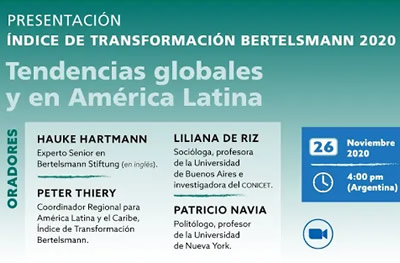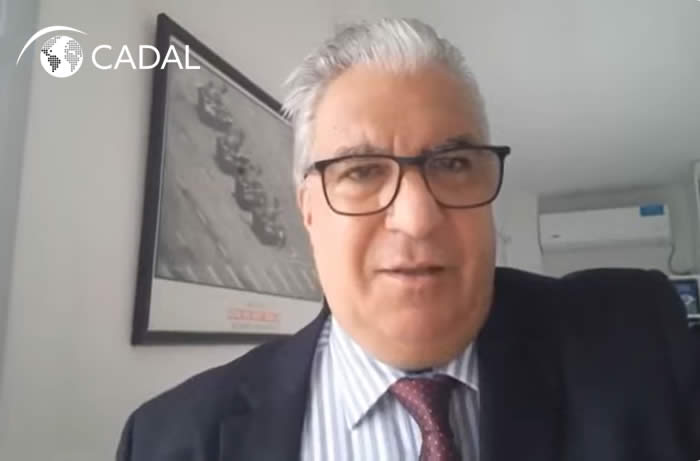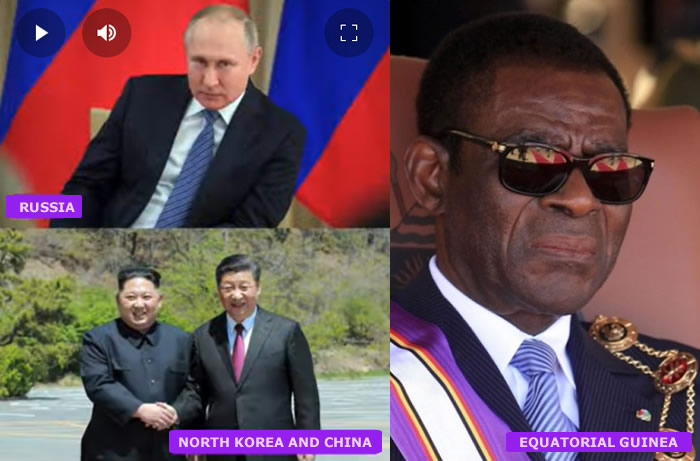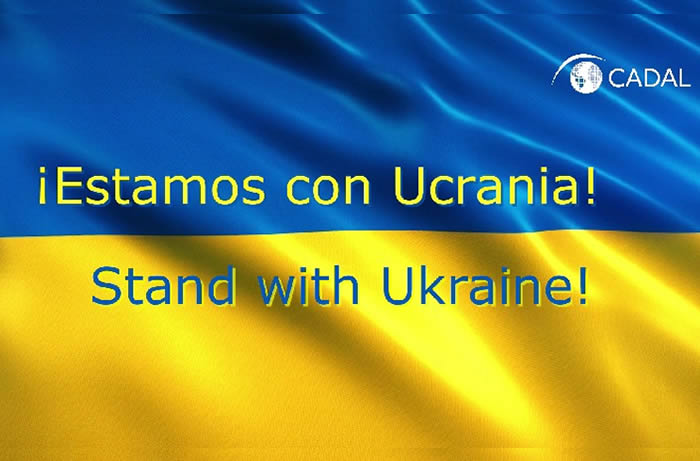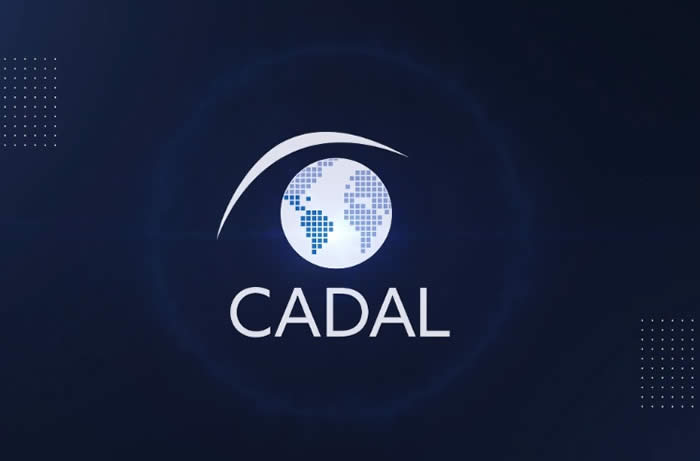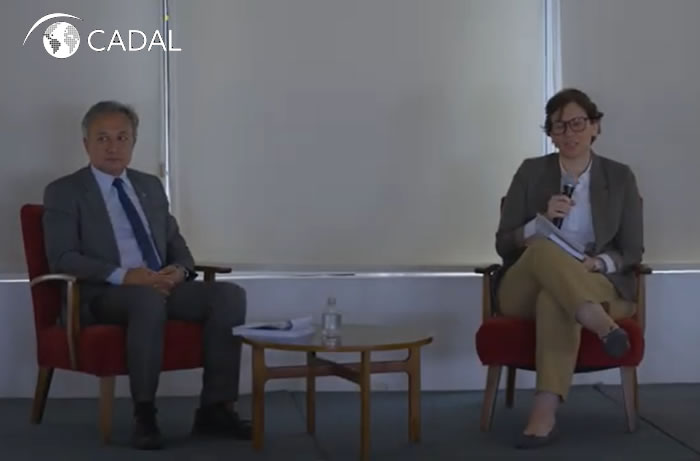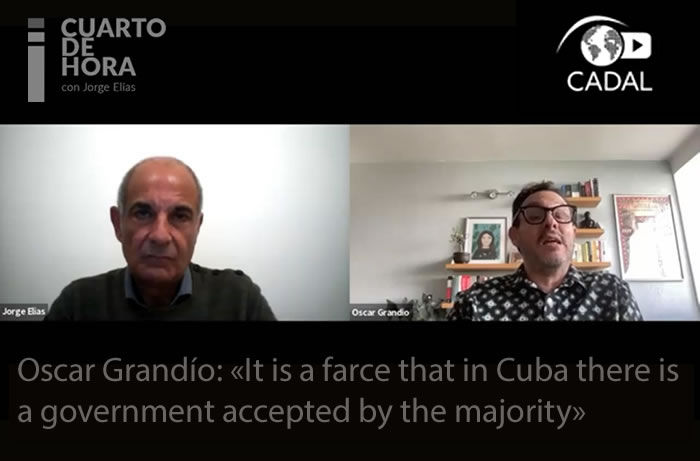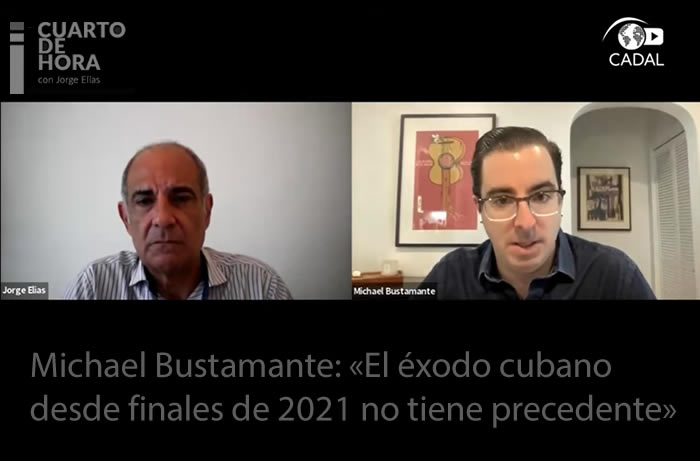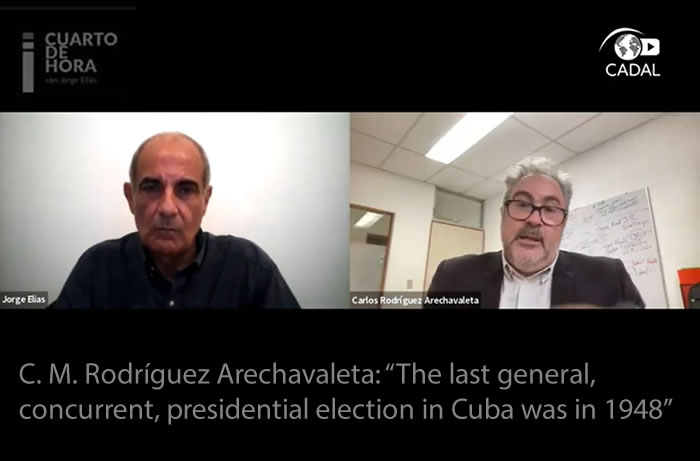Articles
Monitoring of democratic governance
 03-19-2008
03-19-2008New World
In the midst of the storm, emerging countries –and Latin America in particular- are facing a novel challenge: the strong appreciation of their currencies against the dollar. Indeed. Unlike past crises, when a sneeze coming from Wall Street sparked capital flight and devaluation, nowadays the region’s governments see their currencies gain value against the greenback, to the chagrin of its export businesses.
By Raúl Ferro
The United States is entering a recession (71% of economists polled by the Wall Street Journal agreed so according to a mid-March article); stock markets are shaking and oil is breaking the USD 110-a-barrel barrier. The question asked by analysts, economists and executives is how strong will the contagion be and whether it will become a global recession or just an economic slowdown. The crisis has tested the theory of decoupling, an idea that considers the degree to which the world economy has stopped depending on the evolution of the American economy.
In the midst of the storm, emerging countries -and Latin America in particular- are facing a novel challenge: the strong appreciation of their currencies against the dollar. Indeed. Unlike past crises, when a sneeze coming from Wall Street sparked capital flight and devaluation, nowadays the region's governments see their currencies gain value against the greenback, to the chagrin of its export businesses.
The world is very different these days from what it was during the last crisis, at the end of the 1990s. Due to the reforms of the last 15-20 years and to the adoption of some sound basic macroeconomic practices, Latin America has managed to accumulate the benefits of the exporting boom of the last few years, and is now reaping the results. Who would have said a few years ago that Brazil would become a net creditor, with USD 200 billion in international reserves? Nevertheless, it is exactly what happened.
A corollary to this process has been the strengthening of local currencies against the weakened dollar. This is not a fleeting phenomenon. Investment bank Morgan Stanley's projections see these values extending for the next two years.
The strengthening of Latin American currencies brings up several challenges. Firstly, there is issue of what to do with the competitiveness of the export sector. Many export-focused companies will have to close, but those that survive will do so at increased productivity levels. The present juncture is set up so that those that have the resources can invest in imported capital goods -paid in cheap dollars. This will translate into mechanization and automation - and therefore, a reduction in employment. It is a global trend. While displaying the same production capacity, wine producers in Australia, New Zealand or the United States have far fewer employees than Chilean or Argentinean producers (although with significantly higher wages). The same happens with the salmon industry or with agribusiness. Latin American governments will have to assemble strategies to deal with this issue, by facilitating flexible labor schemes to create jobs and, especially, by incentivizing technological training and updating in the workforce.
The macroeconomic metamorphosis in emerging countries has also provoked a corporate revolution. According to several studies by the World Bank and the United Nations, foreign investments from emerging countries towards the rest of the world have risen stably during the past few years. They passed from USD 12 billion in 1990 to 99 billion in 2000 and 210 billion in 2007. An important part of those investments has been so-called South-South transactions, meaning those exchanged between emerging countries. Latin America's global champions have emerged from this process, such as Mexican telecoms company América Móvil, Brazilian miners Vale or Chinese oil giant PetroChina. By the way, the latter became the world's largest company based on market value during its initial public offering last year. Today there are 20.000 multinationals worldwide originating from emerging countries; 43% of global exports are part of trade between emerging economies.
This has special meaning for Latin American politicians. The old self-pitying railings against the industrialized world's imperialism towards poor countries are now a mere illusion. The enemy has moved. Prejudices and platitudes common to Latin American political discourse lie void of references. It will not be easy to replace them - fortunately.
Raúl Ferro is Director of Content Development at Business News Americas and a columnist for "Apertura Latinoamericana".
 Raúl FerroAdvisory CounselorLatin America bussines and economics analysis specialist. Foreign correspondent in South America for American and British economics media. He directed America Economía magazine. He is Director of the CADAL Advisory Council.
Raúl FerroAdvisory CounselorLatin America bussines and economics analysis specialist. Foreign correspondent in South America for American and British economics media. He directed America Economía magazine. He is Director of the CADAL Advisory Council.
The United States is entering a recession (71% of economists polled by the Wall Street Journal agreed so according to a mid-March article); stock markets are shaking and oil is breaking the USD 110-a-barrel barrier. The question asked by analysts, economists and executives is how strong will the contagion be and whether it will become a global recession or just an economic slowdown. The crisis has tested the theory of decoupling, an idea that considers the degree to which the world economy has stopped depending on the evolution of the American economy.
In the midst of the storm, emerging countries -and Latin America in particular- are facing a novel challenge: the strong appreciation of their currencies against the dollar. Indeed. Unlike past crises, when a sneeze coming from Wall Street sparked capital flight and devaluation, nowadays the region's governments see their currencies gain value against the greenback, to the chagrin of its export businesses.
The world is very different these days from what it was during the last crisis, at the end of the 1990s. Due to the reforms of the last 15-20 years and to the adoption of some sound basic macroeconomic practices, Latin America has managed to accumulate the benefits of the exporting boom of the last few years, and is now reaping the results. Who would have said a few years ago that Brazil would become a net creditor, with USD 200 billion in international reserves? Nevertheless, it is exactly what happened.
A corollary to this process has been the strengthening of local currencies against the weakened dollar. This is not a fleeting phenomenon. Investment bank Morgan Stanley's projections see these values extending for the next two years.
The strengthening of Latin American currencies brings up several challenges. Firstly, there is issue of what to do with the competitiveness of the export sector. Many export-focused companies will have to close, but those that survive will do so at increased productivity levels. The present juncture is set up so that those that have the resources can invest in imported capital goods -paid in cheap dollars. This will translate into mechanization and automation - and therefore, a reduction in employment. It is a global trend. While displaying the same production capacity, wine producers in Australia, New Zealand or the United States have far fewer employees than Chilean or Argentinean producers (although with significantly higher wages). The same happens with the salmon industry or with agribusiness. Latin American governments will have to assemble strategies to deal with this issue, by facilitating flexible labor schemes to create jobs and, especially, by incentivizing technological training and updating in the workforce.
The macroeconomic metamorphosis in emerging countries has also provoked a corporate revolution. According to several studies by the World Bank and the United Nations, foreign investments from emerging countries towards the rest of the world have risen stably during the past few years. They passed from USD 12 billion in 1990 to 99 billion in 2000 and 210 billion in 2007. An important part of those investments has been so-called South-South transactions, meaning those exchanged between emerging countries. Latin America's global champions have emerged from this process, such as Mexican telecoms company América Móvil, Brazilian miners Vale or Chinese oil giant PetroChina. By the way, the latter became the world's largest company based on market value during its initial public offering last year. Today there are 20.000 multinationals worldwide originating from emerging countries; 43% of global exports are part of trade between emerging economies.
This has special meaning for Latin American politicians. The old self-pitying railings against the industrialized world's imperialism towards poor countries are now a mere illusion. The enemy has moved. Prejudices and platitudes common to Latin American political discourse lie void of references. It will not be easy to replace them - fortunately.
Raúl Ferro is Director of Content Development at Business News Americas and a columnist for "Apertura Latinoamericana".




